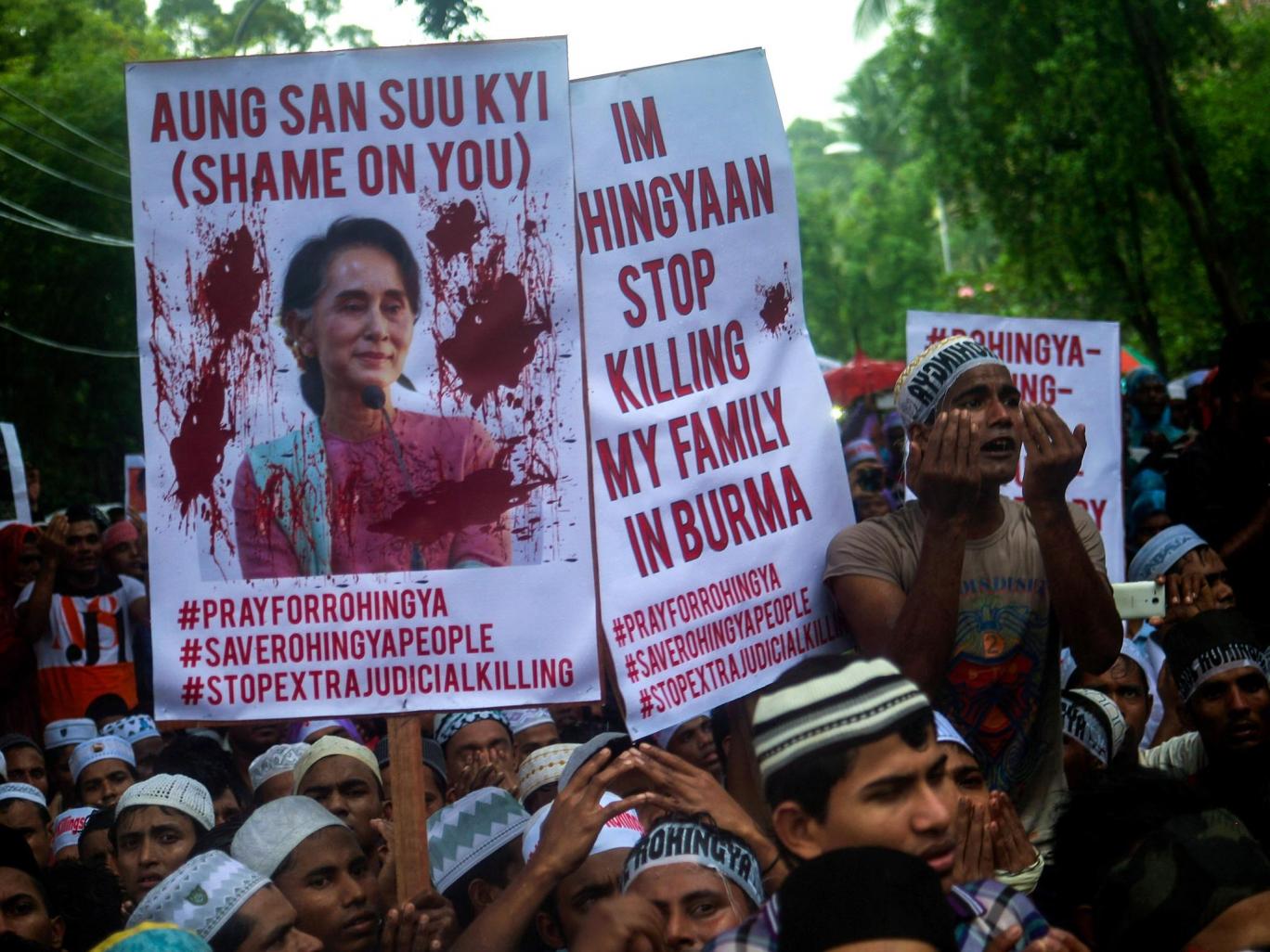Alwaght- Amnesty International has slammed Myanmar's de facto leader over her support for the Buddhist regime that according to the UN is committing act of ethnic cleansing against Rohingya Muslims.
James Gomez, Amnesty International’s Regional Director for Southeast Asia and the Pacific, said "Aung San Suu Kyi today demonstrated that she and her government are still burying their heads in the sand over the horrors unfolding in Rakhine State. At times, her speech amounted to little more than a mix of untruths and victim blaming".
The Human Rights organization's condemnation came after Suu Kyi told on Tuesday she does not know why some 420,000 Rohingyas have fled the country's Rakhine state in less than a month.
While Muslims are fleeing thousands to Bangladesh as their villages burned and hundreds were killed, the Nobel Peace laureate Suu Kyi said, “We want to understand why this exodus is happening. We would like to talk to those who have fled as well as those who have stayed.”
While confirmed reports have been emerging about heinous crimes by Myanmar's military and mobs of Buddhist ethnic majority in the mostly Muslim-populated Rakhine state, Suu Kyi in a live address on television defended her regime from international criticism and apparently blamed the violence on Rohingya Muslims themselves.
Suu Kyi claimed "More than half" of Rohingya villages were not affected by the violence and invited diplomats and foreign observers to visit them to see "why they are not at each other's throats in these particular areas," Implying that Rohingya who were driven from their villages were themselves responsible.
"Aung San Suu Kyi’s claims that her government 'does not fear international scrutiny' ring hollow. Myanmar has repeatedly said it will not co-operate with the UN-mandated Fact Finding Mission established earlier this year. If Myanmar has nothing to hide, it should allow UN investigators into the country, including Rakhine State. The government must also urgently allow humanitarian actors full and unfettered access to all areas and people in need in the region."
Gomez went on to saying that the Rohingya had been "trapped in a cycle of abuse and derivation for decades" and were "essentially segregated in Rakhine State, effectively denied citizenship and face severe barriers in accessing health care and other basic services".
The Buddhist-majority in Myanmar tend to be hostile to the Rohingya and they are dismissed as illegal immigrants from Bangladesh even though most Rohingya have ancestors who have lived in the country for centuries. They cannot travel freely, practice their religion, or work as teachers or doctors, and they have little access to medical care, food or education.



























